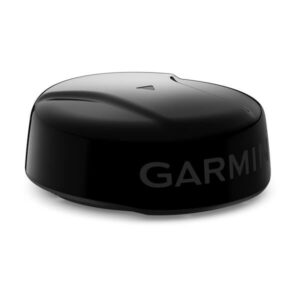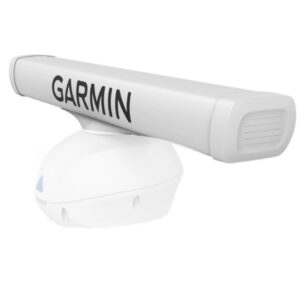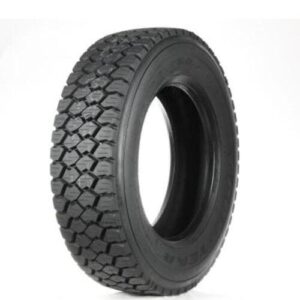coyote engine for sale
If you’re looking for a Coyote engine for sale, chances are you’re a performance enthusiast, gearhead, or someone who appreciates the raw horsepower that Ford’s modular V8 engine brings to the table. Since its introduction in 2011 under the hood of the Ford Mustang GT, the 5.0L Coyote engine has revolutionized the modern muscle car scene and found its way into hot rods, trucks, and even race cars.
Coyote Engine for Sale: The Ultimate Guide for Performance Enthusiasts
Introduction: The Power Behind the Coyote Engine
If you’re looking for a Coyote engine for sale, chances are you’re a performance enthusiast, gearhead, or someone who appreciates the raw horsepower that Ford’s modular V8 engine brings to the table. Since its introduction in 2011 under the hood of the Ford Mustang GT, the 5.0L Coyote engine has revolutionized the modern muscle car scene and found its way into hot rods, trucks, and even race cars.
In this comprehensive guide, we’ll explore everything you need to know about buying a Coyote engine—from performance specs to pricing, where to buy, common swap projects, and what makes the Coyote such a beloved powerplant in the aftermarket world.
🔧 What is a Coyote Engine?
The Coyote engine is a 5.0-liter V8 engine developed by Ford Motor Company as part of its modular engine family. It was first launched in the 2011 Ford Mustang GT and F-150 as a response to Chevy’s LS engine dominance and Mopar’s HEMI resurgence.
Key Features:
-
Displacement: 5.0L (302 cubic inches)
-
Valvetrain: DOHC (Dual Overhead Camshafts)
-
Valve Configuration: 32-valve, Ti-VCT (Twin Independent Variable Camshaft Timing)
-
Horsepower: Ranges from 412 HP (Gen 1) to 500+ HP (Gen 3 & performance variants)
-
Redline: Up to 7,400 RPM
🧬 Coyote Engine Generations Explained
1. Gen 1 (2011–2014)
-
Found in: 2011-2014 Mustang GT, F-150
-
Horsepower: 412-420 HP
-
Notable traits: Cast iron cylinder liners, 11:1 compression, high-flow heads
2. Gen 2 (2015–2017)
-
Found in: 2015-2017 Mustang GT, F-150
-
Horsepower: 435 HP
-
Upgrades: Larger intake/exhaust valves, revised camshafts, higher redline, piston oil squirters
3. Gen 3 (2018–2023)
-
Found in: 2018-2023 Mustang GT
-
Horsepower: 460-480 HP (Mustang GT), 480+ HP (Mach 1)
-
Features: Direct and port fuel injection, higher compression ratio (12:1), plasma arc spray cylinder liners
🚗 Why Buy a Coyote Engine?
1. Reliable Performance
The Coyote engine is known for its reliability under power. Many builders report 700+ HP builds on stock internals with turbo or supercharger kits.
2. Swappability
One of the best aspects of the Coyote is how swappable it is. Whether it’s an old-school Fox-body Mustang, classic F100 pickup, or even a Mazda RX-7, the Coyote fits thanks to a broad aftermarket support.
3. Aftermarket Support
With endless tuning options, headers, intake manifolds, cam upgrades, and power-adders (superchargers, turbos), the possibilities are limitless.
4. Modern Technology
Coyote engines include Ti-VCT and modern emissions compliance while delivering a classic V8 rumble.
🏁 Coyote Engine for Sale: Options & Prices
🔹 Brand New Crate Engines
Ford Performance Crate Engines
-
Gen 3 5.0L Coyote Crate Engine (M-6007-M50C):
-
Price: $8,500 – $9,500
-
Includes intake manifold, throttle body, fuel rails, injectors, coil packs
-
-
Aluminator Series (Built Engines):
-
Price: $13,000 – $18,000+
-
Designed for forced induction, stronger internals
-
🔹 Used Coyote Engines
-
From Mustang GT or F-150 (2011–2023)
-
Price Range: $3,500 – $8,000
-
Consider:
-
Mileage
-
Compression test results
-
ECU and harness availability
-
🔹 Remanufactured Coyote Engines
-
Ideal balance of cost and reliability
-
Price: $5,500 – $9,000
-
Comes with warranties, new gaskets, and tested components
🛒 Where to Buy a Coyote Engine
1. Ford Performance Parts
Official source of new crate engines with warranty support.
2. Summit Racing / JEGS
Reputable aftermarket retailers with full kits, accessories, and remanufactured options.
3. eBay Motors
A great source for used Coyote engines from part-outs and rebuilders. Check seller reviews.
4. Local Junkyards / Salvage Yards
Check for wrecked Mustangs or F-150s with low mileage.
5. Engine Importers / Rebuilders
Businesses like Powertrain Products, Jasper Engines, or ATK High Performance offer warrantied long blocks and short blocks.
🔩 Coyote Engine Swap Projects: Popular Vehicles
Looking to install a Coyote into your ride? Here are some popular swap projects:
🔧 Ford Mustang Fox Body (1979–1993)
-
Easy swap due to size and familiarity
-
Requires K-member, control arms, and custom mounts
🔧 Classic Ford F100/F150
-
Modern V8 power in a classic pickup
-
Custom headers, cooling system mods often required
🔧 Mazda RX-7
-
A cult-favorite swap due to power-to-weight
-
Aftermarket swap kits available
🔧 1960s-70s Muscle Cars (Fairlane, Falcon, Cougar)
-
Classic Ford chassis, ready for modern power
-
Great restomod candidate
⚙️ What You’ll Need for a Successful Swap
-
Coyote engine (Gen 1, 2, or 3)
-
PCM/ECU
-
Engine harness
-
Control Pack (from Ford Performance or aftermarket)
-
Transmission (Tremec TKX, MT82, or 6R80/10R80 auto)
-
Motor mounts
-
Exhaust system
-
Cooling system (radiator, fans)
💰 Cost of a Full Coyote Engine Swap
| Item | Estimated Cost |
|---|---|
| Used/Reman Coyote Engine | $4,500 – $8,500 |
| Transmission (Manual/Auto) | $2,000 – $4,000 |
| PCM & Wiring | $1,500 – $2,500 |
| Fuel System Upgrade | $500 – $1,000 |
| Mounts & Accessories | $500 – $1,500 |
| Total Estimate | $9,000 – $17,000+ |
⚠️ Coyote Swap Considerations
-
Space constraints: DOHC heads are wide; may need firewall and steering adjustments.
-
Electronics: Integration with gauges, security (PATS), and emissions equipment.
-
Emissions legality: Check local laws, especially in California or emissions-restricted states.
-
Cooling: More power = more heat. Invest in a quality radiator and fans.
📈 Coyote vs. LS Engine: Which is Better?
| Feature | Coyote 5.0 | LS3 6.2 |
|---|---|---|
| Displacement | 5.0L | 6.2L |
| Valvetrain | DOHC | Pushrod |
| Stock HP | 435–480 HP | 426 HP |
| RPM Range | High (7,000+) | Moderate |
| Aftermarket | Strong | Massive |
| Swap Ease | Moderate | Easier (smaller block) |
| Cost | Slightly higher | Slightly lower |
Verdict: The Coyote offers higher RPM, better airflow, and modern tech, while the LS wins on simplicity, size, and cost. Both are incredible—choice depends on your project goals.
Frequently Asked Questions (FAQs)
Q1: Can I buy a Coyote engine directly from Ford?
Yes. Ford Performance offers new crate engines and control packs for swaps.
Q2: How much HP can a stock Coyote handle?
Stock Gen 2 and Gen 3 Coyotes can handle 700+ HP with forced induction and good tuning.
Q3: Is a Coyote swap street legal?
In most states, yes. However, check CARB compliance if you live in California or a smog-state.
Q4: Can I use my stock transmission?
Not always. Many swaps require a matching transmission (MT82, TREMEC, or 6R80).
Q5: What’s better—Coyote or LS?
Both are excellent. Coyote = modern tech and high revs. LS = affordability and swap simplicity.






There are no reviews yet.